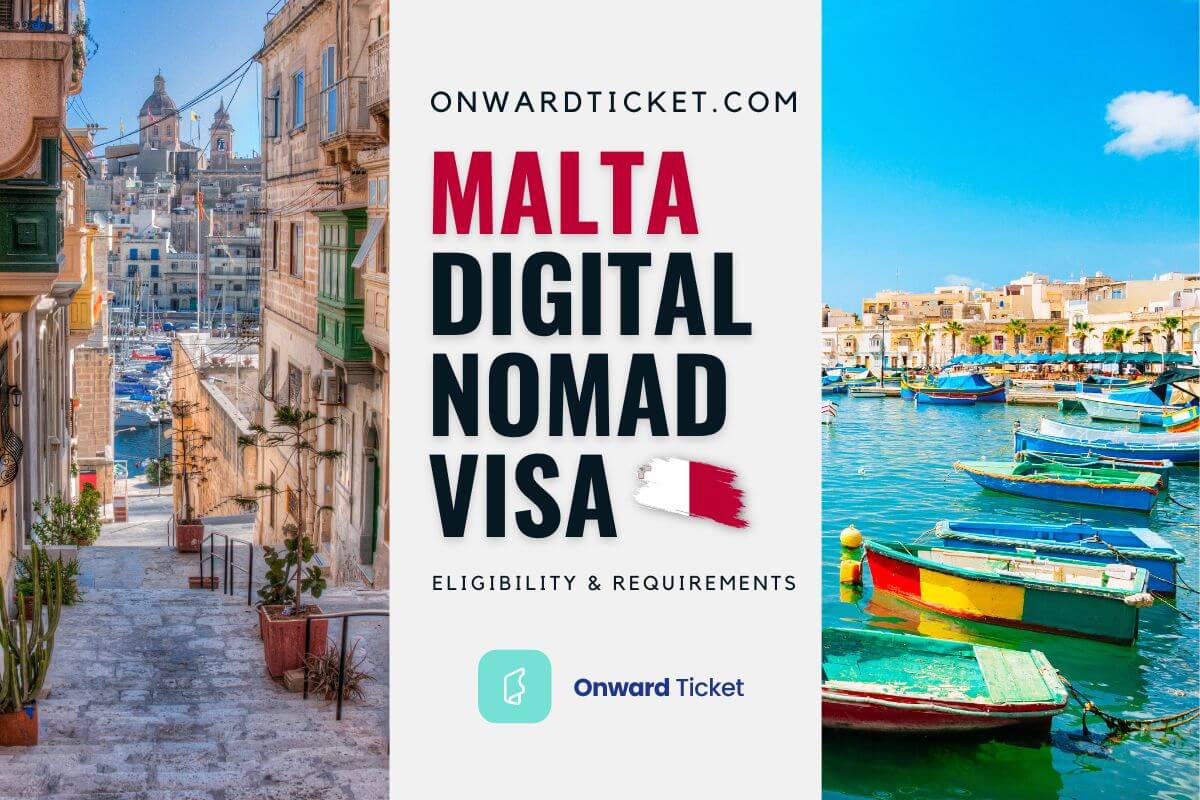Here we plan to introduce Malta digital nomad visa requirements and application for this year by providing a comprehensive guide for remote professionals seeking to reside on this Mediterranean gem.
Delve into the specific criteria, application process, and essential documents required to secure your place in Malta's thriving digital nomad community…
Malta Digital Nomad Visa - Key Points Explained
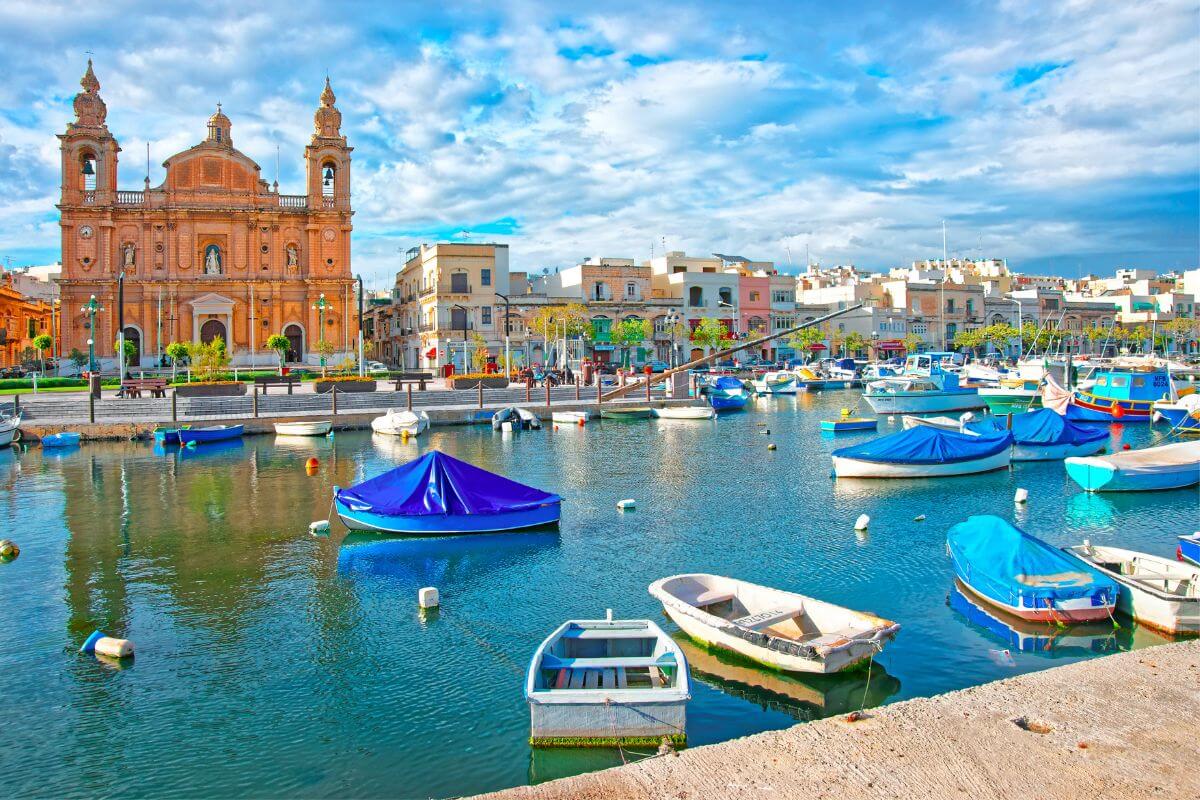
Here are the key points to bear in mind about Malta digital nomad visa :
- Eligibility : the Malta digital nomad visa targets remote professionals, freelancers, and business owners who earn a stable income of at least 2700 € per month and have valid health insurance coverage. You must work for clients or companies outside Malta.
- Application Process : apply online through the Maltese government's official portal, submit the necessary supporting documents, including proof of income, health insurance, and employment status. A non-refundable application fee applies.
- Duration : the digital nomad visa grants successful applicants a one-year residence permit, renewable annually as long as you meet ongoing eligibility requirements.
- Taxation : while residing in Malta, digital nomads are not subject to double taxation, as Malta has double taxation agreements with various countries.
- Benefits : Malta's digital nomad visa offers an attractive combination of work-life balance, affordable living, reliable internet, and a safe, English-speaking environment.
- Integration : Malta has a vibrant digital nomad community, with numerous coworking spaces and networking events.
Is It Hard To Get Malta Digital Nomad Visa ?
Obtaining a Malta Digital Nomad Visa is a straightforward process as long as you meet the eligibility criteria.
If you have a stable income of at least 2700 € and are working for clients outside Malta, you stand a good chance of approval. Don't be discouraged by the process, the application is usually pretty quick.
Types Of Malta Digital Nomad Visa

The Malta digital nomad visa is a specific type of residence permit designed for remote professionals.
While it is not a separate visa category, it falls under the Temporary Residence Permit framework.
There are two main types of digital nomad visas in Malta :
- Non-EU/EEA/Swiss Nationals : you require a National Visa (Type D) to enter Malta, followed by a Temporary Residence Permit application, which grants you the digital nomad visa status.
- EU/EEA/Swiss Nationals : as citizens of these countries enjoy freedom of movement within the EU, you can simply apply for the temporary residence permit to obtain the digital nomad visa status.
The type of digital nomad visa also depends on the time you plan on spending in Malta :
- Up to 180 days : national visa
- Minimum of 365 days and above : nomad residence permit
Regardless of nationality, the requirements and benefits of the Malta digital nomad visa remain the same.
Eligibility & Malta Digital Nomad Visa Requirements

Here are the requirements you will have to meet in order to apply for the Malta digital nomad visa :
- Employment status : you must work remotely as freelancers, employees, or business owners, providing services to clients or companies in a foreign country outside Malta. Proof of employment or business ownership is required.
- Monthly income threshold : a minimum monthly income of 2700 € / $2965 is necessary to ensure financial stability during your stay. Proof of income includes bank statements or payslips.
- Health insurance : comprehensive health insurance coverage, including both public and private healthcare, is mandatory.
- Criminal record : a clean criminal record is also mandatory.
- Accommodation : prospective digital nomads must secure accommodation in Malta prior to applying for the visa (rental or purchase agreement for example)
- Visa application fee : a non-refundable application fee must be paid when submitting the application.
Digital Nomad Visa Income Requirements for Malta
The income requirement for Malta's digital nomad visa aims to ensure that you possess the financial stability to reside in the country comfortably.
To qualify, you must demonstrate a minimum monthly income of 2700 € / $2965, which equates to roughly 32400 € / $35600 per year. This threshold is set above the average Maltese salary to maintain a high standard of living.
Proof of income can be provided in various forms : bank statements, payslips, financial documents…
Digital Nomad Visa For Malta Documents

Here is an exhaustive list of all the required documents you need to show when applying for the Malta digital nomad visa :
- Passport : a valid travel document with at least six months of remaining validity from the intended date of entry into Malta.
- Passport-sized photos : two recent, color passport-sized photographs that adhere to biometric photo guidelines.
- Proof of income : documentation that verifies a stable monthly income of at least 2700 € (bank statements, payslips, or business financial records).
- Health insurance : evidence of comprehensive health insurance coverage, including both public and private healthcare services in Malta alongside medical documents.
- Proof of accommodation : a rental agreement or other documentation that confirms your residence in Malta.
- Employment or business documents : for employees, a letter from the employer confirming remote work status ; for freelancers, self employment documentary evidence ; and for business owners, relevant registration documents.
- Police clearance certificate : clean criminal record from your home country.
Malta Digital Nomad Visa Application Process

Here is a step by step guide on how to apply for the digital nomad visa in Malta :
- Preparation : gather all the required documents and ensure they are up-to-date and accurate.
- Online application : visit the Maltese government's official visa portal to complete the online application form and upload the necessary supporting documents.
- Application fee payment : pay the non-refundable application fee.
- Application submission : submit the completed application and wait for the processing, which usually takes around four weeks.
- Visa decision : upon approval, you will receive a notification with further instructions. In case of refusal, you may be provided with reasons for the rejection.
- Visa issuance : successful applicants residing outside the EU/EEA/Swiss region must visit the nearest Maltese embassy or consulate to collect their National Visa (Type D) to enter Malta.
- Arrival in Malta : non-EU/EEA/Swiss nationals must apply for the Temporary Residence Permit within three months of arrival, while EU/EEA/Swiss nationals can apply directly for the Temporary Residence Permit.
- Residence permit collection : upon approval of the Temporary Residence Permit, you will receive a digital nomad visa, granting you the right to live and work remotely in Malta for one year.
Malta Digital Nomad Visa Renewal Process
Digital nomad visa for Malta renewal is subject to meeting the ongoing eligibility requirements, such as stable income and valid health insurance.
While there is no specific limit on the number of renewals, the decision lies at the discretion of the Maltese authorities.
As long as you continue to meet the necessary criteria, renewals are generally granted.
How Long Is A Malta Digital Nomad Visa Valid For ?
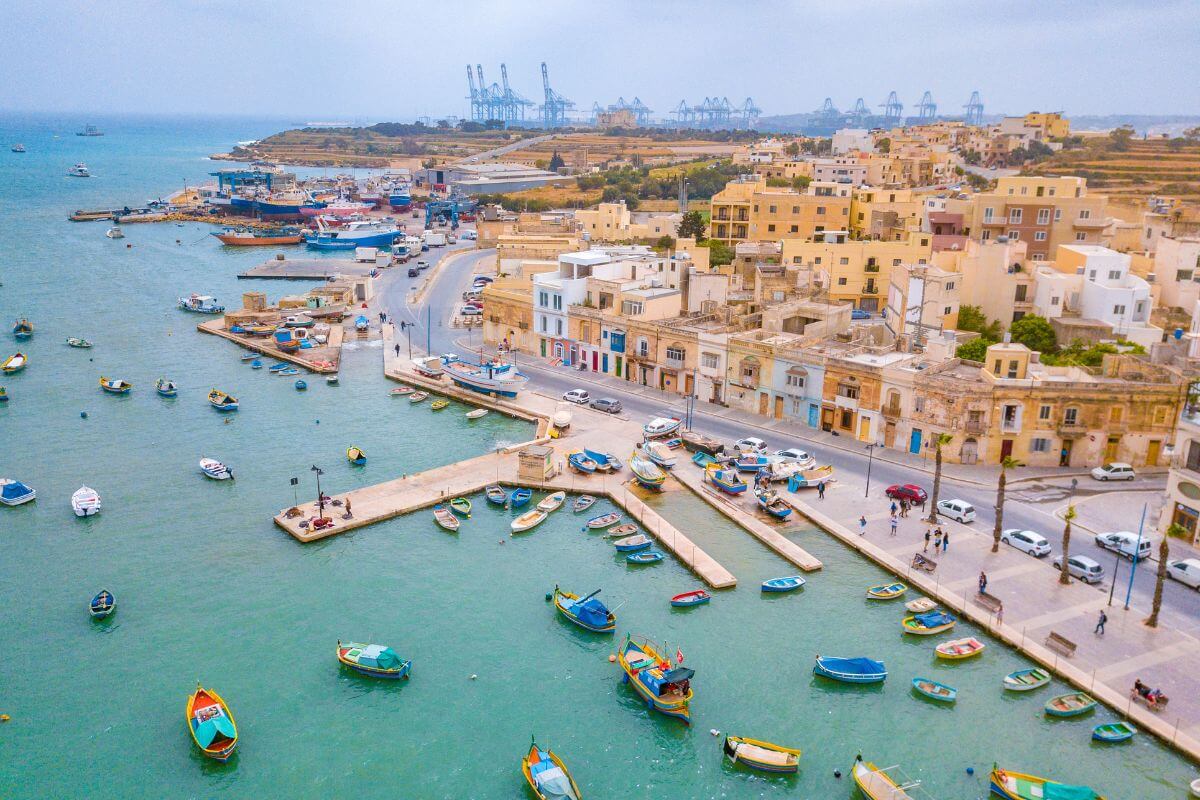
The Maltese digital nomad visa is valid for one year from the date of issuance.
Successful applicants receive a temporary residence permit, which grants them the right to live and work remotely in Malta for the duration of the visa.
Upon approaching the expiry date, you can apply for a renewal as a nomad residence permit holder, provided you continue to meet the eligibility criteria.
Digital Nomad Visa Malta Cost & Fees
The application fee for the Maltese digital nomad visa is 300 € for the main applicant. This non-refundable fee covers the processing and evaluation of the application.
If you wish to include dependent family members in your application, you can do so by paying an additional 300 € for each dependent.
These fees are separate from any other expenses incurred during the application process, such as obtaining the necessary documents or securing health insurance coverage.
Malta Digital Nomad Visa Tax To Expect

Remote workers residing in Malta are not subject to double taxation, thanks to the double taxation agreements Malta has with numerous countries.
While living in Malta, digital nomads will be taxed on their Maltese-sourced income, but not on their foreign-sourced income.
Please make sure you understand the local tax laws and are aware of any tax obligations in your home country. Consulting a tax professional to help navigate the intricacies of taxation is highly recommended !
How Long You Wait To Get Malta Digital Nomad Visa
The processing time for the Malta nomad visa varies but generally takes around four weeks from the submission of a complete application.
Delays can occur, especially during peak periods or if there are issues with the provided documentation.
To minimize waiting time, ensure that all required documents are up-to-date, accurate, and submitted according to the guidelines provided by the Maltese authorities.
Can You Bring A Family Member With You ? Malta Family Visa

Yes, digital nomads can bring their dependent family members to Malta under the Malta nomad residence permit program.
The main applicant must pay an additional 300 € for each dependent they wish to include in their application. Family members will be granted a residence permit, allowing them to live in Malta for the duration of the visa.
Please note that they are not authorized to work in Malta unless they obtain a separate work permit.
Living In Malta As A Digital Nomad - Is It Expensive ?
While living costs in Malta can be higher than in some countries, it is still considered affordable compared to other popular digital nomad destinations in Europe.
With reasonable housing, transportation, and grocery costs, Malta offers a good balance between affordability and quality of life.
You should thus be able to maintain a comfortable lifestyle without breaking the bank, especially if you choose to live in less touristy areas.
Here are some expenses to expect as nomad residence permit holders in Malta :
| Accommodation | Cost |
|---|---|
| Rent | 600 to 900 € / $690 to $990 |
| Buy | From 70000 € / From $77000 |
| Hotels | 60 to 100 € / $66 to $110 |
| Bnb | 50 to 90 € / $55 to $100 |
| Food | Cost |
|---|---|
| Restaurant | 20 to 40 € / $22 to $44 |
| Groceries | 200 to 300 € / $220 to $330 /month/pers |
| Fast Food | 5 to 10 € / $5,50 to $11 |
| Transports | Cost |
|---|---|
| Bus | 1,5 to 3 € / $1,65 to $3,30 per trip |
| Taxi | 1 to 2 € / $1.10 to $2.20 per km |
| Car rental | 25 to 40 € / $28 to $44 per day |
| Leisure | Cost |
|---|---|
| Day excursion | 30 to 60 € / $33 to $66 |
| Nightlife | 10 to 30 € / $11 to $33 |
| Museum / attractions | 5 to 10 € / $5 to $11 |
| Outdoor activities | 10 to 30 € / $11 to $33 |
You can also check the Cost of Living in Malta here.
Is There Digital Banking In Malta
Yes, digital banking is available in Malta. They offer you convenient and efficient financial services.
Several Maltese banks like Merkanti Bank Ltd or NBG Bank Malta offer online banking services that allow you to manage your accounts, transfer funds and pay bills from anywhere with internet access.
Additionally, you can also use international digital banks like Revolut and N26 that offer easy account setup, multi-currency support and low fees. A great choice for digital nomads and frequent travelers !
Are business trips a regular part of your schedule? Optimize your travel management by combining these banking services with specifically designed apps for business travel.
Popular Hotspots & Best Places For Digital Nomads In Malta
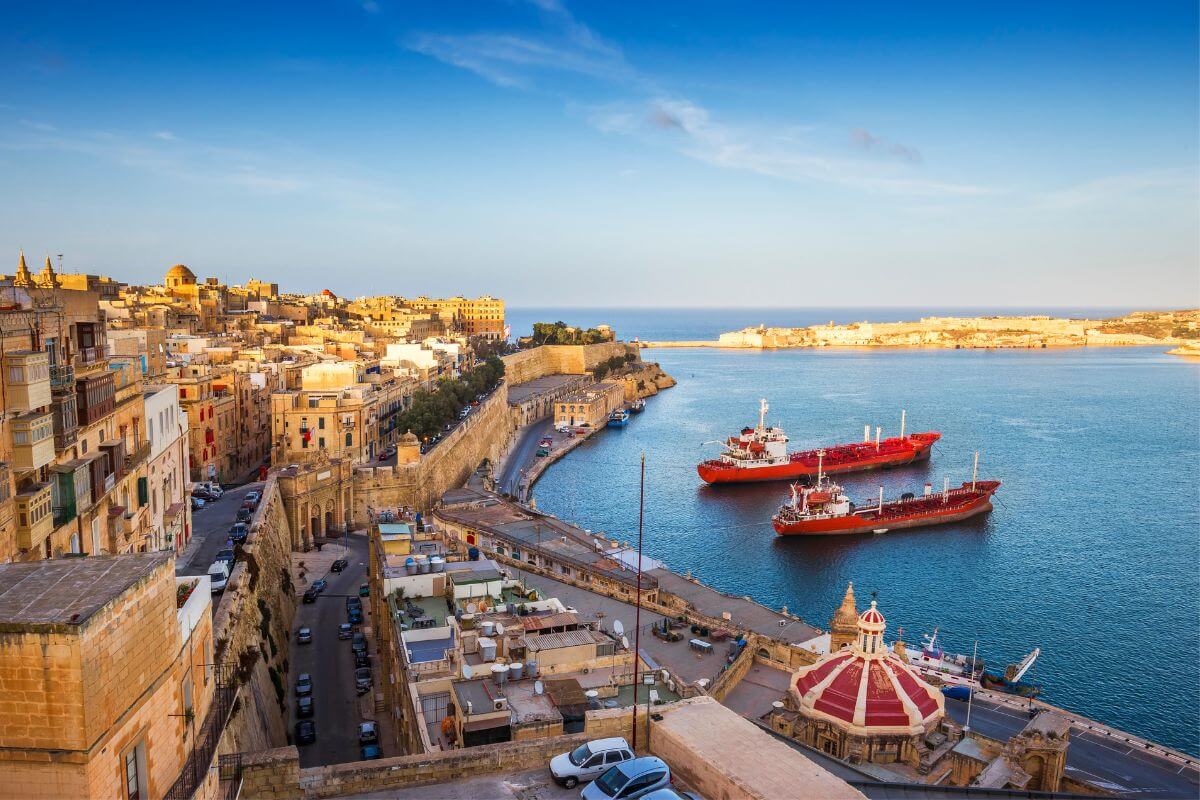
Here are some of the best places to live in with a Maltese nomad residence permit :
- Valletta, the capital city of Malta is loved for its historic architecture and rich culture. Remote workers can find coworking spaces and charming cafes nestled among the city's narrow streets and historic sites.
- Sliema is a bustling coastal town, popular for its modern infrastructure, shopping centers and lively café culture. Remote workers can find numerous coworking spaces and coffee shops with Wi-Fi, while enjoying the beautiful promenade and stunning sea views.
- St. Julian's is known for its vibrant nightlife and entertainment scene. With plenty of coworking spaces and a strong digital nomad community, this area is ideal for networking and socializing with other remote professionals.
- Also known as the "Silent City," Mdina offers a peaceful atmosphere away from the bustling urban centers. The ancient fortified city features quaint streets, stunning architecture and a slower pace of life. It is an ideal location for Malta nomad residence permit holders seeking a quiet retreat.
- Gozo, Malta's second-largest island is an excellent destination for digital nomads who enjoy a tranquil and rural setting. You will absolutely love its pristine beaches, picturesque landscapes and laid-back vibe. Gozo provides a serene environment for digital nomad residence permit holders.
Are There Coworking Communities In Malta
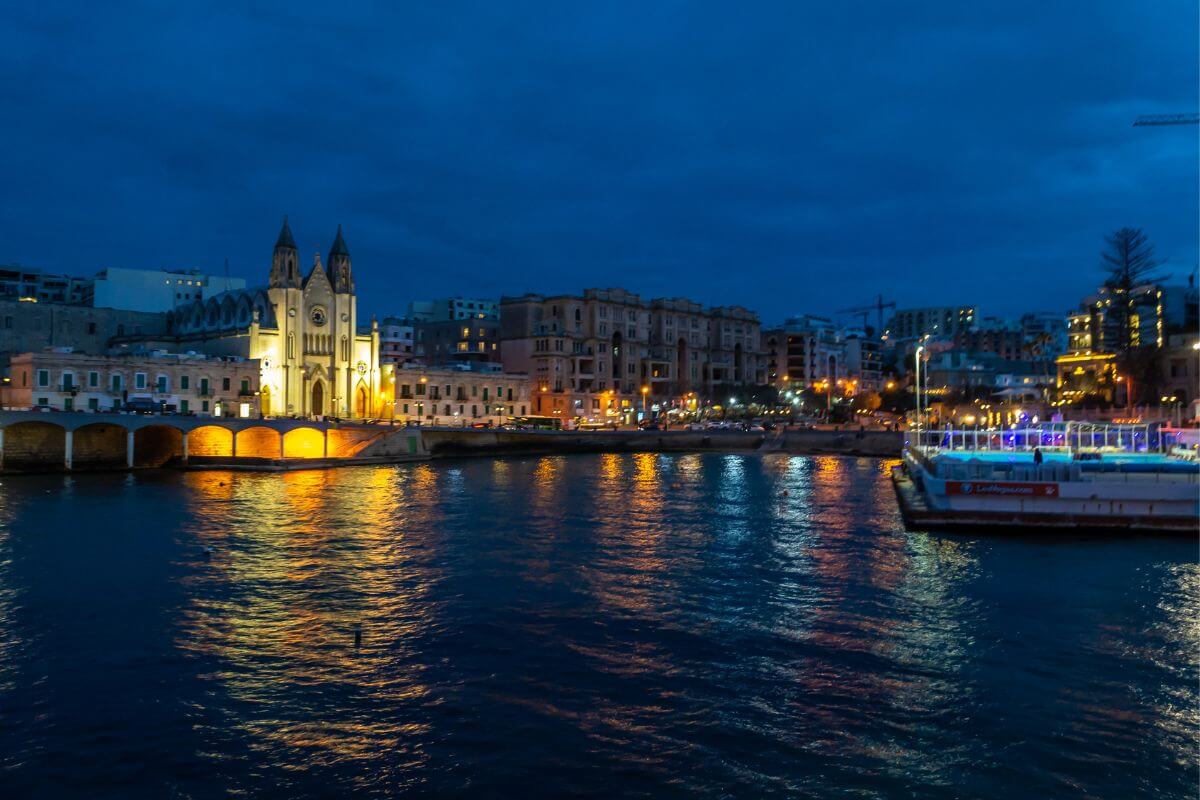
Malta is welcoming more and more digital nomads coming from other European countries, but also from North Africa and third country nationals.
Here are the best coworking communities we could find on the island.
Valletta
In Valletta, the capital city of Malta, digital nomads can find a growing coworking community that supports remote professionals with various needs.
Coworking spaces like Grand Central and Valletta Hub offer flexible workspaces, meeting rooms, and networking events.
Sliema
Sliema is a popular coastal town and is home to several coworking spaces that cater to remote professionals.
Soho Office and The Hub Coworking provide comfortable work environments, high-speed internet and opportunities to network with like-minded professionals.
St. Julian's
St. Julian's is known for its lively entertainment scene and also has a thriving coworking community.
Spaces like Soho Office and Regus offer excellent facilities with ergonomic workstations, meeting rooms and event spaces.
Is Malta Safe For Digital Nomads ?
Malta is considered a pretty safe destination for digital nomads, with low crime rates and a stable political climate. But like in any location, you will have to take standard precautions to protect yourself and your personal belongings.
We highly recommend you invest in travel insurance to cover any unforeseen incidents, medical emergencies, or travel disruptions. SafetyWing and World Nomads are two popular travel insurance providers to compare, as they cater specifically to the needs of long-term travelers.
Final Pros & Benefits
Malta offers numerous advantages for digital nomads : a pleasant Mediterranean climate, stunning landscapes, growing coworking communities, rich cultural heritage…
The country's high-quality internet infrastructure and affordable cost of living make it an attractive destination for permanent establishments.
The English-speaking population and the country's strategic location at the heart of the Mediterranean make it an ideal base for exploring other European and North African destinations.
In addition to that, the nomad residence program is quite easy to navigate.
Few Drawbacks To Have In Mind
While Malta has numerous advantages for digital nomads, there are a few drawbacks you should also consider.
- The small size of the island can make it feel somewhat crowded, particularly during peak tourist season.
- Public transportation options can also be limited, leading to increased reliance on taxis or car rentals.
- The cost of living, although affordable compared to other European countries, may still be higher than in some popular digital nomad destinations.
- Also, your family members won’t be allowed to work on the island while traveling under your residence permit.
3 Alternative Countries With Similar Requirements We Recommend

Looking for another foreign country quite similar to Malta to settle as a digital nomad ?
Here are our best suggestions.
Estonia
Estonia is the pioneer of the digital nomad visa concept and offers remote professionals a supportive environment with a robust digital infrastructure.
The country's e-residency program and innovative approach to digital services make it an attractive alternative to Malta.
Croatia
Croatia's beautiful coastline, historic cities and affordable cost of living make it an ideal destination for remote workers.
The country has recently introduced a digital nomad visa program to simplify the process for remote professionals to live and work in Croatia.
Greece
Greece's stunning landscapes, rich history and pleasant climate make it a desirable location for digital nomads.
The country has recently introduced a tax incentive program for remote workers and offers significant financial benefits to those who choose to relocate there.
There's more to discover - This guide on Countries With Digital Nomad Visas unlocks the doors to 40 incredible countries spread across every continent, each offering digital nomad visas tailor-made to suit your wanderlust-filled dreams.
FAQs

US citizens can stay in Malta visa-free for up to 90 days. For longer stays, they need to apply for the Malta residence permit.
Yes, the Malta digital residence program is worth it for remote professionals seeking a safe, affordable, and beautiful European destination with a strong digital infrastructure.
Health insurance for digital nomads should cover medical emergencies, hospitalization, repatriation and any country-specific requirements for visa applications.
Digital nomads pay tax in Malta on locally-sourced income, but foreign-sourced income is generally tax-exempt, provided you don’t become a tax resident.
Wrap Up
Malta nomad residence permit presents a unique opportunity for remote workers seeking a European base with a pleasant climate, rich culture and high-quality digital infrastructure.
The nomad residence permit simplifies the process of living and working in Malta, while the country's tax system offers potential advantages for those with foreign-sourced income.
Don’t forget to weigh the pros and cons and consider factors such as cost of living, safety and visa requirements before you apply for the nomad digital residence program !

